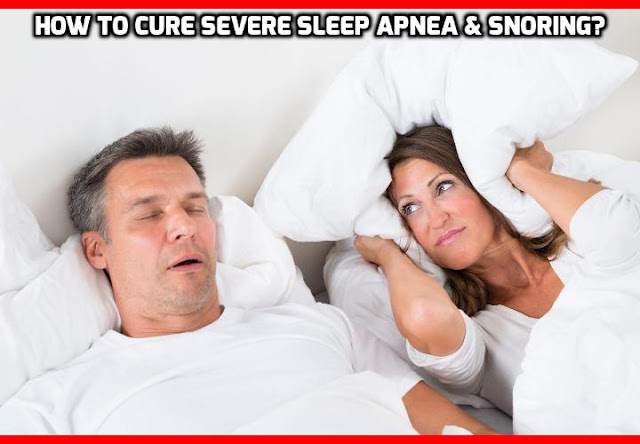 |
Click on Here to Find Out How You Can Get Rid of Snoring and Sleep Apnea |
If
you suffer from any kind of chronic pain, most likely you’re taking specific a type of painkiller.
But
a new study reveals these specific painkillers can lead to sleeplessness and even sleep apnea. Which then again
worsens your pain so you need more of these painkillers.
One
of the standard treatments for chronic pain is an opioid prescription. These
drugs include codeine (the weakest one), morphine, hydrocodone, oxycodone, and
fentanyl.
In
addition to the myriad digestive consequences opioids cause, another terrible
condition resulting from chronic opioid use is obstructive sleep apnea.
From
previous studies on healthy people, it seems as if poor sleep causes an increase
in pain sensitivity. Luckily for them, their pain threshold can be returned to
normal by restoring their good quality sleep.
If
poor sleep quality causes people in
chronic pain to be more sensitive to pain too, this places them on a downward
spiral:
1.
They are in pain, for which they use opioids.
2.
The opioids lead them to develop sleep apnea and thereby destroy
their ability to get good quality sleep.
3.
The worse they sleep, the more pain they experience and the more opioids they
use.
5.
The worse their sleep quality gets, the more pain they feel and the more opioids they
want to use, and so on.
Researchers
recently published an article in the Journal
of Clinical Sleep Medicine that identified American military veterans as a
group especially at risk because of the chronic pain from which they suffer.
They
analyzed data collected of veterans who presented at the Western New York
Healthcare System sleep clinic between 2012 and 2014 with chronic pain, opioid
prescriptions, and sleep apnea.
They
then compared the pain score each of these patients received before a course of
continuous positive airway pressure (CPAP) with the scores they received
afterwards.
In
addition, they checked whether any of these veterans reduced or dropped their
opioid consumption after the CPAP.
Regrettably, the CPAP reduced neither the pain nor the opioid use, even though the veterans were sleeping better.
This
means that, while improving sleep, CPAP cannot improve the pain threshold of
people with chronic pain who are taking opioids.
Another
alarming finding was the discovery that opioid-dependent veterans did not
comply with the CPAP as well as the non-opioid takers did, explaining why they
benefited from it much less.
These
conclusions suggest that it is a bad idea to take chronic opioids, as they may
cause sleep apnea.
But CPAP masks are not the best way to cure severe sleep apnea. Here are the simple 3-minute exercises I used to permanently get rid of mine…
And if you suffer from chronic pain, such as arthritis, use this step-by-step strategy to heal yourself (and avoid painkillers) in 28 days or less…
This Tiny Change Can
Cure Severe Sleep Apnea and Snoring
Most
people diagnosed with sleep apnea are sentenced to lifelong use of CPAP Masks
while sleeping.
But
according to a Finnish research, getting 80% improvement in sleep apnea is a
relatively simple task.
We
know that weight loss has many benefits. The great news is that it greatly
improves sleep apnea with as little as 5 percent reduction in total body
weight.
Being
overweight is one of the major risk factors associated with sleep apnea. In
fact, nearly 70 percent of people with sleep apnea are obese. Similarly, being
overweight increases the chances of developing sleep apnea nearly 10 times.
As
you can see, it all works down to body weight.
In
the study conducted by the Finnish researchers, 57 moderately obese people with
mild sleep apnea problems were assigned to exercise and diet routines while
others in the study were instructed about the general benefits of a proper diet
and regular exercises.
All
the patients were followed-up on a regular basis and it was discovered that
those who had achieved at least 5 percent reduction in body weight showed
significant improvement in sleep apnea. Those who continued to lose a healthy
amount of weight had an amazing 80 percent reduction in the condition.
The Stop Snoring and Sleep Apnea Program
offers a revolutionary new approach to help people stop snoring. Snoring is not
only disruptive to our partners, but it poses health risks as well, especially
for people who suffer from sleep apnea.
This all-natural program will get you to shake
off your pesky and unhealthy snoring habit using only easy to perform natural
exercises.
No comments:
Post a Comment